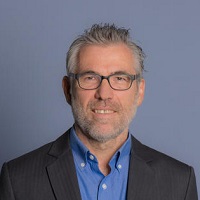This Meet the Expert session covered current and upcoming health literacy tools being used locally and/or globally. These include the Health Education Impact Questionnaire (heiQ), the Health Literacy Questionnaire (HLQ), and the Ophelia (OPtimising HEalth LItercy and Access) process. Upcoming tools include the e-Health Literacy Framework and Questionnaire (co-developed with Copenhagen University), new organizational health literacy self-assessent framework (to support an organization to become a Health Literate Organization), and the practitioner-patient level CHAT: Conversational Health Literacy Assessment Tool.
Early approaches to health literacy focused primarily on health literacy as health-related reading and numeracy (ie functional health literacy), but health literacy is clearly a multidimentional concept whereby individuals have an individual mix of strengths and needs. Some people can have very low functional health literacy, but have strengths in social support and care quality, thus they can be very successful in their self-care despite some important weaknesses. Clearly, healthcare professionals and the complexity of the system itself can help or hinder individual individuals and communities. The workshop also covered the emerging concept of community capacity health literacy.
In summary, the workshop discussed health literacy for:

Professor Richard Osborne is the Chair of Public Health and is head of the Health Systems Improvement Unit, Deakin University, Australia. He holds a prestigious National Health and Medical Research Council (NHMRC) Senior Research Fellowship focusing on Global Health Literacy Development and Equity. In 2016 he was appointed Affiliate Professor of Health Literacy at the University of Copenhagen, Denmark.
Richard has a strong track record in initiating and leading large collaborative research projects.
His work has made substantial contributions to the fields of health literacy, chronic disease self-management and measurement science. His academic outputs include over 200 peer reviewed papers and reports, supervision of 12 PhD scholars (6 current), and ~EURO15m in research funding. Richard is a consultant to the World Health Organisation (WHO) and to a range of governments, NGOs and health insurance organisations. His work is contributing to health systems improvement initiatives in Asia, Africa, Europe and the Americas. He made critical contributions to the Thailand national approach to health literacy, the Taiwan Children’s Health Literacy Measure, and the EU Health Literacy Survey (EU-HLS).
Central to the work of Richard’s team is the development of practical tools and approaches that pratitioners, managers, researchers and policymakers can use to improve their understanding of health inequalities and to then develop rapid ways to create and implement interventions.
The work is strongly grounded in real world settings and the daily experiences of diverse community members. He has consequently developed new approaches to find and hear ‘the voice’ of key stakeholders (from patients to policymakers), and to systematically develop health literacy-informed interventions.
Richard and his team at Deakin University Australia have generated new approaches to participatory research, inclusion and community consultation. In the UK, using the Ophelia approach, he is currently working in service improvement and equity with Public Health Wales, NHS Scotland, and with teams based in Newcastle and Oldham. This is in addition to work with marginalised and segregated groups (in Slovakia in Roma settlements, and South Africa within informal settlements), as well as in rural and regional communities (Thailand, Australia) and other countries.